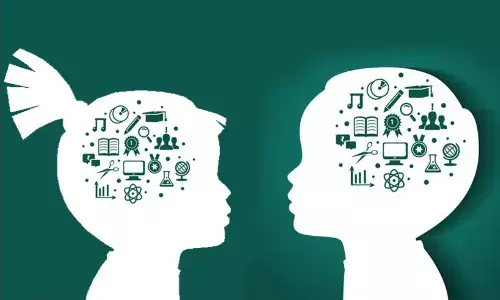The Future of Business Laws
As the world changes, so will the laws that govern the business world. New laws will develop and dominate the marketplace depending on the priorities of the most influential economies of the time and the mindsets of their people...The only constant in the world is change. We see it all around us. In the seasons that the planet experiences to the pace at which technology develops replacing the...
As the world changes, so will the laws that govern the business world. New laws will develop and dominate the marketplace depending on the priorities of the most influential economies of the time and the mindsets of their people...
The only constant in the world is change. We see it all around us. In the seasons that the planet experiences to the pace at which technology develops replacing the old and making it obsolete.
Our world as we experience it today is a result of history. There are many aspects that shape our world, some of the prominent factors being climate, war, economy, peace and prosperity - all of which are linked intrinsically to the way in which a country or economy grows. When an economy does well because natural factors are aligned in its favor, it flourishes. And with it, flourish the lives of the people that belong to that economy. It is better able to command itself over fellow economies and mould the trade systems of the world in its favor. The collective and majority will of its people can reach beyond its borders. As a result, the laws it develops not only help it prosper but ensure that its impact is felt all around the world.
When I started negotiating my first technology contracts in 2007 - based out of Bangalore, India, I found myself looking at contract clauses and concepts which I hadn't studied at my law school in India. Our in-house department fought tooth and nail to secure a favorable "Limitation of Liability Clause" but ironically, when I tried to check the jurisprudence on the topic in India - I came upon zero cases. This rather alien concept had come across from the Silicon Valley in the US and today sits in every one of our technology contracts. We had chosen to take templates that originated in the Silicon Valley, tweak a few clauses on jurisdiction and governing law, and insert references to local legislations on intellectual property law and we had our very own Indian technology contracts.
The US, Europe and Japan have been dominant economic forces of the world from the end of the Second World War till recently. However, it is widely believed that this everchanging world is yet again set to see a group of new economies emerge as the future world leaders. The NASDAQ, on June 27, 20191 published a study titled "The 5 Fastest Growing Economies in the World". The countries that made it to this list are Guyana, Ethiopia, Rwanda, Bangladesh and India. It is clear from this list that the fastest rates of growth are recorded in the global south. African and Asian economies dominate all lists that showcase growth thanks to the evident slowdown in dominant world economies. Industrialization and modernization are processes that convert underdeveloped nations into developed ones by setting up industries and hence increasing the economic activity of that nation. A fire can burn where there is fuel and underdevelopment can act as fuel for rapid industrialization. Therefore, the rate of growth will be the highest in economies that have room to grow. Countries that were in the forefront of industrialization in the previous century, on the other hand, are now experiencing slower growth, ageing populations, high interest rates etc.
Furthermore, given today's global political environment-where the two largest economies, U.S. and China have locked horns causing great anxiety that their continued
non-cooperation could destabilize the world economic order. The European Union is also appearing to be undergoing great change with Brexit and increasing influx of populism. In this world environment, the countries whose economies are flourishing will act as the beacons of hope and keep the economic wheels of the world turning. In my paper, I will explore the impact dominant economies and their laws can have on the world and the factors that will steer economic growth in the future and the influence it will have on the world of business laws.
Laws that reach across borders
Humans as a species originated in Africa and settled all over the planet. Some travelled far and wide ending up in remote islands while others came together and settled on the plains across the continents. Humanity has always found a way of connecting with one another. We organized ourselves as tribes, villages, civilizations, empires and as of today - largely as countries. The Oxford dictionary defines a "country" as "a nation with its own government, occupying a particular territory". Regions such as the European Union have gone a step further and the countries therein have organized themselves as a region. Each form of human organization must interact with one another to constantly evolve. Today, most of the world's countries are democracies, allowing for the will of the people to become the law of the land. It is therefore, tougher for countries to declare war at the drop of a hat. The world had experienced a relative calm of 74 years since the end of World War II. During this time, the countries that had the right mix of resources needed for economic prosperity were able to make themselves strong and dominate the world.
In this environment, laws originating from leading economies have had the ability to impact the rest of the world. The first example of a law which has such extra territorial reach is the U.S. Foreign Corrupt Practices Act (FCPA) of 1977.
The US FCPA is the most extensively enforced anticorruption law till date.
The Foreign Corrupt Practices Act of 1977 (FCPA) (15 U.S.C. § 78dd-1, et seq.) is a United States federal law known primarily for two of its main provisions: one that addresses accounting transparency requirements under the Securities Exchange Act of 1934 and another concerning bribery of foreign officials. The core aim of the Foreign Corrupt Practices Act (FCPA) is to prohibit companies and their individual officers from influencing foreign officials with any personal payments or reward. The FCPA applies to any person who has a certain degree of connection to the United States and engages in corrupt practices abroad, as well as to U.S. businesses and foreign corporations trading securities in the U.S.2
It is the first legislation to introduce corporate liability, responsibility for third parties and have an extraterritorial reach over offenses committed outside U.S. territories - meaning companies and persons can be held criminally and civilly responsible for corrupt acts committed abroad. This law requires that U.S. "issuers" (of securities that are traded on U.S. Stock Exchanges)" must obey the FCPA, even when acting outside the country. An "issuer" is any company that has securities registered in the United States or is otherwise required to file periodic reports with the United States Securities and Exchange Commission (SEC). The United States is home to the top two of the world's stock exchanges- The NYSE and the NASDAQ. The NYSE is the world's largest stock exchange by market capitalization of its listed companies at US$30.1 trillion as of February 20183 and the NASDAQ is the second largest stock exchange second only to the NYSE located in the same city. To be able to trade on these leading stock exchanges, companies are required to comply with the laws that regulate these stock exchanges- including the FCPA. Therefore, in an era where more than ever, the world's trade is being conducted by multinational entities whose shares are listed on the U.S. exchanges mentioned above- laws such as the FCPA, have a far-reaching impact.
The U.S. criminal law enforcement authorities have stated their intention to cast a wide net in enforcing the FCPA4. These enforcements have been such that subsidiaries of companies that trade on U.S. exchanges around the world have had to ensure that they have robust compliance practices that meet the FCPA requirements. This has resulted in a new specialization within in-house departments - a one that requires a keen eye that is able to detect and deter corruption in the dealings of companies with government entities. India, like many other countries, also enacted an anti-corruption law - The Prevention of Corruption Act (1988) - but its impact can't be felt anywhere else in the world.
Also, in this section, it is essential to mention the E.U. GDPR which has been the center of much discussion. The General Data Protection Regulation (GDPR), agreed upon by the
European Parliament and Council in April 2016, replaced the Data Protection Directive (Directive) in May 2018 as the main law regulating how enterprises treat and protect EU citizens' personal data. Companies that were already in compliance with the Directive were required to ensure that they are also compliant with the new requirements of the GDPR before it becomes effective on May 25, 2018. Companies that fail to achieve GDPR compliance before the deadline would be subject to stiff penalties and fines. This requirement caused a great flurry of panic within companies causing many companies to review, rework and establish new data privacy standards within the organization in compliance with the GDPR.
Simply put, the GDPR mandates a baseline set of standards for companies that handle EU citizens' data to better safeguard the processing and movement of E.U. citizens' personal data. Since this data travels all around the worldits compliance is required by all organizations that are likely to receive and process the data of E.U. citizens.
"Who is Subject to GDPR Compliance?
The purpose of the GDPR is to impose a uniform data security law on all EU members, so that each member state no longer needs to write its own data protection laws and laws are consistent across the entire EU. In addition to EU members, it is important to note that any company that markets goods or services to EU residents, regardless of its location, is subject to the regulation. As a result, GDPR will have an impact on data protection requirements globally."5
The two legislations that we looked at in this section showcase the ability of laws to transcend the territorial boundaries of the countries of their origin. These laws set standards for the industries and businesses that are under their purview, notwithstanding traditional territorial limitations that laws usually have. It is also important to note that the enforceability of these legislations is backed by the strong political positions of the countries and regions from which these legislations originate. However, with new economies taking the center stage, the world will see new laws with extra territorial impact emerging out of such new dominant nations and regions.
Factors that will affect the landscape of future businesses
1. Emerging technologies
The first industrial revolution was brought on alongside the invention of the steam engine and hydro power in the late eighteenth century. This revolutionized production of goods. The world saw the first production of cloth in the power looms of Manchester. The next wave of industrial revolution was experienced in the nineteenth century with the introduction of electricity and mass production of goods. In this wave, the use of conveyor belts, petroleum products, electricity, chemical and mechanical tools brought about industrialization. The third industrial revolution that took place in the mid-1970s saw the rise of information technology being embedded into industrial production. In 2019, we are now at the beginning of the fourth industrial revolution or industry 4.0. Artificial Intelligence, IoT (internet of things) and robotics are some of the technologies that will enable intelligent factories to become a reality. In these factories, everything will be connected wirelessly. Industry 4.0 will look at independent cyber physical systems communicating with one another to produce a product or result. Industry 4.0 is already being witnessed in manufacturing, logistics, construction and public transport sectors around the world.
The emerging technologies are here to stay and will certainly be a part of the human journey on this planet. However, these technologies will also need to be regulated. Countries that have the highest rates of adoption of these technologies should be on the forefront of the dialogue of what laws/regulations are created alongside these technologies.
Many emerging technologies rely on data and the exchange of data between humans and machines. However, exchange and storage of data gets affected by privacy and data protection regulations. Countries where such regulations are tighter are likely to experience slower adoption of newer technologies. On the other hand, countries which are culturally less sensitive to issues of privacy are likely to be the largest markets for new technologies. Example India and China are the largest users of the internet and India is currently the largest market for Whatsapp and Facebook. Both of these countries have minimal restrictions on privacy and are either considering new specific privacy legislations (India) or in the recent past, have introduced new specific data protection legislations (China). These legislations will only gain teeth when there is a complementary enforcement authority associated with it. The weight of this enforcement will depend on the priority of these nations. For now, these markets will continue to grow and be the largest markets for data-driven technologies for the simplest reason- their large populations and relaxed cultural approach towards privacy. However, as these markets grow and mature, it will be the laws of these countries that will affect the development and narrative of these technologies. While today Amazon and Facebook are facing anti-trust and privacy inquiries in the United States, they will also be answerable to their larger markets in the very near future.
2. Impact of Climate Change on commerce
The beginning of the 20th century saw the introduction of fossil fuels in industrial and domestic use. Humans started to burn fossil fuel for a wide variety of reasons. We warmed our homes, created electricity, moved from one place to another and fueled mass production with this black gold. The more industrialized a nation is - the more fossil fuel it burns. The United States holds less than 5% of the world's population, but due to large houses and private cars, uses more than 25% of the world's supply of fossil fuels.6 Fossil fuels have allowed us humans to make great advancements however, their use also pollutes the air and warms the planet. The ecological impact of use of fossil fuels can be seen in recent years in incidents of mass coral bleaching, forest fires, record high temperatures and unprecedented floods and storms across the planet. There is a great demand from all corners of the world to change the way in which the world operates. There is a call for ban on plastics, use of clean energy and a move towards sustainable living. Surprisingly, the countries that have a total ban on plastic bags are countries in Africa, India and China. The use of plastic and fossil fuel is often proportionate to the level of industrialization in a country and hence, the largest polluters are usually the economically strongest countries.
One can hope that the developing economies will create legislations and regulations that are ecologically sensitive and because of their sheer demographic size, are able to influence the global dynamic and force multi-national entities to chart environmentally sustainable business and manufacturing processes. This change is evident in the automobile industry where automobile manufacturers are seeing challenges in growth due to increasing demand for electrification of vehicles and new emission standards. India and China have been early adopters of electrification.
China has 99% of the world's 250 million electric twowheelers. That's nearly 100 times the total number of electric passenger cars in the world. Starting in 1999, Beijing designated electric two-wheelers that can't go faster than 20 km per hour (12 mph) as "bicycles." That meant they could be used without a license or registration and ridden in bicycle lanes. Next, it restricted the ownership of gasoline-powered two-wheelers in the central parts of cities.
The country is now applying what it learned with twowheelers to accelerate the electrification of four-wheelers.7
The second-most populous country in the world - India - is also on the forefront of these changes - aligning its policies with its commitment to the Paris Accord on climate change, signed in 2016. The Indian Government through its think tank Niti Aayog has been in discussions with the automobile industry to ensure mass adoption of electric vehicles.
Future legislations and bodies of law
Law develops as a reaction to the happenings of the times. For example, copyright law developed as a reaction to the invention of the printing press. Patent law developed alongside the industrial use of products and it was the crucial legal foundation upon which the Industrial Revolution could emerge and flourish8. Similarly, the changing landscape of the world will bring about new laws and regulations. Here are some possible examples of the future bodies of law:
AI Code of Ethics
The field of AI research was born at a workshop at Dartmouth College in 1956.9 However, it is only in the past few years that we have seen an increased use of AI. The increase in the use of data and the Internet in the recent past has made technologies like AI work better than ever before. However, AI and human rights do not always go hand in hand. Several uses of this technology tend to infringe upon basic human rights such as the right to privacy and data protection. It is therefore very important to have a code on ethics at the very onset of the commercial use of this technology.
A body of law that will govern all emerging technologies
We often see that technologies are used together in combinations that complement each other to bring about a final result. Today, several technologies make up the basket of emerging technologies - e.g., Internet of Things (IoT), faster Internet - 5G, use of drones and hover boards, Big Data, Block chain, 3D printing, in vitro meat and nanotechnology. When all these emerging technologies will be combined in several permutations and combinations by companies for commercial use, there is a likelihood that the current business legislations will be ill-equipped to handle such dynamic results. Hence, there will be a need to develop a body of law that combines topics of privacy, ethics, integrity, intellectual property rights, sustainability and human rights in order to regulate the use of emerging technologies in the world.
Uniform global environmental code
The impact of climate change can be felt all over the planet. Environmental degradation cannot be contained by border walls or barriers. Therefore, more than ever before - there is a need to have a uniform code for environmental laws that makes every country in the world equally responsible for the promotion of sustainable practices and ecologically sensitive business laws across the planet, irrespective of the size of the country. If we have any hope of keeping climate change within safe boundaries, global emissions need to fall to zero within the next three decades. That was the message of the Intergovernmental Panel on Climate Change, 2018 at the World Economic Forum.10 This can only be achieved by a concerted effort by all nations and companies' commitment to the joint goal of reaching zero emissions. The micro level implementation of such a commitment can only be achieved by way of a law applying to individuals, households, companies, manufacturing units, factories, municipalities and states uniformly across the globe.
Conclusion
As the world changes, so will the laws that govern the business world. New laws will develop and dominate the marketplace depending on the priorities of the most influential economies of the time and the mindsets of their people. Laws that focus on sustainability, ethical use of emerging technology, fair trade and ecological sensitivity are likely to take center stage. We can only hope that in the coming years, the laws that have a huge impact on the world are not just laws that allow for smooth trading of goods and services globally but are also laws that allow us to use the planet's natural resources wisely, use technology to further mankind's reach in the universe, and finally to leave a habitable planet for our future generations.
2 https://en.wikipedia.org/wiki/Foreign_Corrupt_Practices_Act.
3 https://www.nasdaq.com/article/the-5-fastest-growing-economies-in-the-world-cm1169784.
4 https://www.pillsburylaw.com/images/content/2/4/v2/2457/39AB4865BEB55357DC2348AC196767CF.pdf.
5 https://digitalguardian.com/blog/what-gdpr-general-data-protection-regulation-understanding-and-complying-gdprdata-protection.
6 "The State of Consumption Today". Worldwatch Institute. Retrieved March 30, 2012.
7 https://qz.com/1517557/five-things-to-know-about-chinas-electric-car-boom/.
8 Leaffer, Marshall A. (1990). "Book Review. Inventing the Industrial Revolution: The English Patent System, 1660-1800". Articles by Maurer Faculty (666). Archived from the original on 2015-10-04; MacLeod, Christine (1988). Inventing the industrial revolution : The English patent system, 1660-1800. Cambridge: Cambridge University Press. ISBN 9780521893992. Archived from the original on 2015-10-04.
9 Russell & Norvig 2003, p. 17, who call the conference "the birth of artificial intelligence."
10 https://www.weforum.org/agenda/2019/07/zero-emissionstarget-climate-change-impact/
Disclaimer: • The views and opinions expressed in this article are those of the authors and do not necessarily reflect the official policy or position of any organization.
• This article was first published in the International In-house Counsel Journal.







